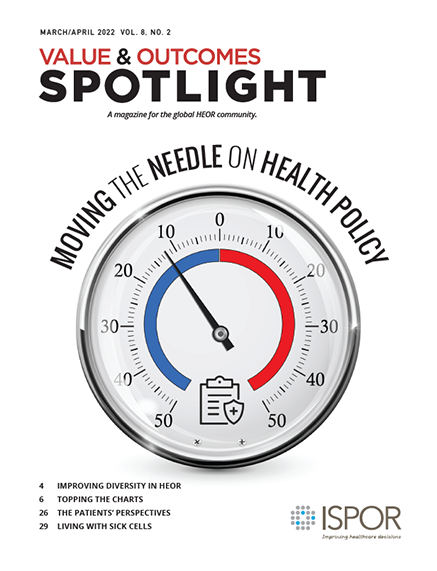Research Roundup
Section Editor: Aakash Bipin Gandhi, BPharm, PhD, Research Scientist, RWE, Sanofi, Cambridge, MA, USA
How can health economics be used in the design and analysis of adaptive clinical trials? A qualitative analysis.
Flight L, Julious S, Brennan A, Todd S, Hind D. Trials. 2020;21(1):1-12.
Summary
The article by Flight et al discusses the incorporation of health economics within the design and analytical framework of adaptive clinical trials to increase their efficiency. As opposed to traditional trials, an adaptive design relies on active data monitoring to help inform real-time modifications during the progress of the trial, which may maximize time and cost savings. While adaptive trials commonly focus on clinical effectiveness measures, the incorporation of health economics within its framework has been rarely discussed. The present study aimed to collect stakeholder opinions and views related to the use of health economics in adaptive clinical trials. The stakeholders included general members of the public (irrespective of their patient status, utilization of the healthcare system, or involvement in clinical trials), researchers, and healthcare decision makers that were involved in healthcare technology assessments. All the stakeholders answered a survey and expressed ethical, methodological, and practical considerations related to the inclusion of health economics in adaptive trials.
Relevance
Certain key thematic results emerged from the stakeholder survey. First, participants were in strong agreement that clinical effectiveness continues to be the primary component of adaptive trials despite the importance of economic outcomes to healthcare decision makers. Second, participants expressed apprehension related to familiarity with health economic methodologies. Hence, it was suggested that individuals with specialist knowledge in this area serve on adaptive trial committees. Third, participants suggested that there should be greater cohesion between health economists and statisticians on trial committees to ensure that trial methodologies and analytics result in valid and robust outcomes. In summary, while the adoption of health economic methodologies can widen the perspective of adaptive trials, stakeholder opinion (eg, not compromising the importance of clinical effectiveness) and provision of adequate training in this field must be carefully considered before the implementation of these approaches.
Precision health economics and outcomes research to support precision medicine: big data meets patient heterogeneity on the road to value.
Chen Y, Guzauskas GF, Gu C, et al. J Pers Med. 2016;6(4):20.
Summary
In this article, Chen et al discuss the role that precision health economics and outcomes research (HEOR) plays in helping quantify the impact of patient and disease heterogeneity on economic outcomes. Further, the article stresses the important role that big data plays in supporting precision HEOR approaches. The authors discuss the possibility of precision HEOR replacing traditional HEOR approaches as personalized medicine continues to evolve. This can aid the development of targeted disease management approaches tailored to patient needs coupled with an efficient allocation of healthcare resources for greater societal benefit.
Relevance
Precision HEOR can offer several benefits. First, it can help pharmaceutical and device manufacturers develop market access strategies that target patient populations with relevant interventions. Second, it can help improve payer reimbursement decision making and healthcare resource allocation by accounting for heterogeneity in patient and disease-related characteristics. Third, precision HEOR can demonstrate the value of orphan drugs. For example, while drug approval for a rare disease may not substantially benefit the total patient population, precision HEOR is able to demonstrate its value for specific subgroups of individuals most affected by the condition.
Current and future use of HEOR data in healthcare decision making in the United States and in emerging markets.
Holtorf AP, Brixner D, Bellows B, Keskinaslan A, Dye J, Oderda G. Am Health Drug Benefits. 2012;5(7):428.
Summary
The objective of the study by Holtorf et al was to evaluate the use of HEOR data by managed care organizations in the United States for access and reimbursement decision making. The study surveyed 72 decision makers from managed care organizations and 30 Pharmacy and Therapeutic members on their views about the current use of HEOR data, associated barriers and limitations, and vision for future use. In addition to the United States, an international perspective was obtained by modifying the survey as per feedback received at a HEOR conference in Europe. Further, a pilot version of the survey was also shared with relevant stakeholders in Asia, Latin America, Middle East, and Africa. A large proportion of respondents from the United States (74%-77%) stated that HEOR methodologies were currently incorporated into their decision-making process. However, a large proportion of US respondents (66%) also revealed that quality assessments related to these methodologies were limited. Overall, a majority of the US respondents expected the use of HEOR for healthcare decision making to continue increasing in the future. The use of HEOR varied across Asia, Latin America, Middle East, and Africa regions.
Relevance
The study provides a significant benchmark for the use of HEOR in the United States that can be used for future comparisons. The study also highlighted that the use of HEOR in reimbursement and healthcare decision making continues to increase, especially in the United States.
Note from the Section Editor: Views, thoughts, and opinions expressed in this section are my own and not those of any organization, committee, group, or individual that I am affiliated with.

